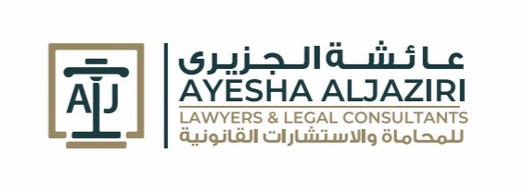Ayesha Aljaziri Lawyers & Legal Consultants is a premier full-service law firm in Dubai, United Arab Emirates. Founded by respected attorney Ayesha Aljaziri, we provide trusted legal solutions across 14+ practice areas with full rights of audience before ALL UAE courts (civil, Sharia, commercial, and appellate). Our multilingual lawyers advise both businesses and individuals on the evolving regulatory landscape for cryptocurrency and blockchain in Dubai and across the wider UAE.
Key Takeaways
- Dubai Virtual Assets Regulatory Authority (VARA) is the primary regulator for virtual asset activities in the Emirate of Dubai (outside the DIFC). Within the Dubai International Financial Centre (DIFC), oversight sits with the Dubai Financial Services Authority (DFSA).
- The UAE Central Bank regulates payments and stored value facilities, while federal AML/CFT obligations apply to all virtual asset service providers (VASPs), including customer due diligence, ongoing monitoring, and suspicious activity reporting to the UAE Financial Intelligence Unit.
- Licensing is activity-based (e.g., exchange, brokerage, custody, advisory). Local presence, robust compliance frameworks, and governance are essential.
- Rules continue to evolve. Businesses should maintain agile compliance programs and obtain timely legal advice to operate confidently and lawfully.
Definition and Overview
Cryptocurrency is a form of digital asset that uses cryptography and blockchain—a distributed ledger—to record transactions securely and transparently. Major networks like Bitcoin and Ethereum enable peer-to-peer value transfer and, in Ethereum’s case, smart contracts for programmable transactions. Beyond investment and payments, blockchain underpins applications such as tokenised assets, supply-chain tracking, and identity solutions.
Why it Matters in Dubai’s Economy
Dubai has positioned itself as a hub for financial technology and digital assets. The Emirate’s framework seeks to balance innovation with investor protection, enabling businesses to explore compliant use cases—from tokenised fundraising and custody to enterprise blockchain solutions—while aligning with international standards. For clients, the opportunity is significant, but so is the need for clear licensing, risk management, and legal structuring.
Who Regulates Cryptocurrency and Blockchain in Dubai?
Multiple UAE bodies share responsibility depending on location and activity. Understanding these touchpoints is crucial to planning your operating model.
1. Dubai Virtual Assets Regulatory Authority (VARA)
VARA oversees virtual asset activities conducted in the Emirate of Dubai outside the DIFC. If your business intends to operate an exchange, brokerage, custody, advisory, or certain other virtual asset services in Dubai, you will generally engage with VARA for licensing and ongoing supervision. Expect requirements around fitness and propriety, risk and governance, client disclosures, market integrity, and technology controls.
2. Dubai Financial Services Authority (DFSA) – DIFC
Within the DIFC free-zone, the DFSA regulates financial services, including specific categories of digital asset activities. Firms choosing the DIFC route must meet DFSA authorisation standards, which include capital, systems and controls, and detailed compliance policies. Selection between VARA and DFSA often turns on target client base, product set, and institutional requirements—our financial services and fintech lawyers in Dubai can help you assess both pathways.
3. UAE Central Bank
The Central Bank sets and enforces rules for payments and stored value, including licensing for payment service providers. Where a crypto business intersects with payment services or fiat on/off-ramps, Central Bank oversight may apply. Compliance typically includes safeguarding client money, outsourcing controls, operational resilience, and AML/CFT obligations.
4. Federal AML/CFT Framework and the UAE FIU
All VASPs are subject to federal Anti-Money Laundering and Counter-Terrorist Financing requirements. Obligations include customer due diligence, beneficial ownership verification, risk-based monitoring, sanctions screening, and filing Suspicious Transaction Reports (STRs) via the UAE’s goAML platform to the Financial Intelligence Unit. Record-keeping and staff training are critical components of an effective program.
Legal Framework: Core Rules You Should Know

While details continue to mature, several themes are consistent across Dubai and the wider UAE:
- Activity-based licensing: Exchange, brokerage/dealing, custody, advisory/portfolio management, and related services typically require explicit authorisation.
- Investor protection and disclosures: Clear risk warnings, complaints handling, and marketing approval rules help ensure fair treatment of customers.
- Market integrity: Standards around price discovery, conflicts of interest, and surveillance seek to reduce manipulation and protect market participants.
- AML/CFT and sanctions: KYC, ongoing monitoring, suspicious activity reporting, and sanctions screening are mandatory and enforced.
Compliance Pillars for VASPs
- Customer Due Diligence: Verify identity using reliable documents, identify beneficial owners, and apply enhanced due diligence for higher-risk profiles.
- Ongoing Monitoring: Review transactions and behaviour against expected activity; investigate anomalies and file STRs as needed via goAML.
- Governance & Risk: Appoint a compliance officer, adopt written policies, conduct enterprise-wide risk assessments, and test controls regularly.
- Technology Controls: Ensure secure custody, wallet management, cybersecurity, and incident response. Independent audits are advisable.
- Record-Keeping: Maintain comprehensive records for regulatory inspection and to evidence compliance.
Licensing Pathways and Application Considerations
Typical Licensed Activities
Depending on your business model, you may require authorisation for one or more of the following:
- Exchange/Marketplace: Listing, matching, and trading services for virtual assets.
- Broker/Dealer: Execution, placing, and order handling for clients.
- Custody/Trustee Services: Safekeeping, wallet operations, and private key management.
- Advisory/Portfolio Management: Professional recommendations, discretionary mandates, and research.
Across both VARA (Dubai, outside DIFC) and DFSA (within DIFC), you should expect requirements around local presence, fit-and-proper management, audited financials, capital adequacy (where applicable), and robust AML/CFT programs. Marketing and promotions often require prior approvals and prescribed risk warnings. Our technology, media & telecommunications lawyers support clients on regulatory approvals, IP, and data privacy issues tied to blockchain deployments.
Reporting and Supervision
Regulators expect timely reporting (e.g., material incidents, cybersecurity events, and certain transactional thresholds), independent audits where applicable, and proactive engagement on changes to business models. Firms must maintain complaints logs, treat customers fairly, and ensure staff competence through training and certification.
Tax Considerations for Virtual Assets
The UAE imposes a federal corporate tax on the profits of businesses above the statutory threshold. Whether you operate as a VASP or hold tokens on balance sheet, profits may be within scope—structuring and accounting treatment matter. The UAE also applies VAT on most supplies of goods and services, with specific analysis required for token utility, brokerage services, and cross-border supplies. The UAE does not levy a general personal income tax, but individuals and entrepreneurs should assess residence, business licencing status, and potential corporate tax exposure where activities rise to a taxable business.
Our corporate lawyers in Dubai coordinate with finance teams to align tax, accounting, and regulatory obligations, while our arbitration lawyers support dispute resolution in complex fintech matters.
Future Trends and What to Watch
Dubai’s regime continues to refine rulebooks addressing custody standards, market abuse surveillance, staking and lending risks, advertising, and stablecoin/payment token oversight. Institutions exploring tokenisation, enterprise blockchain, and cross-border products should anticipate additional guidance and evolving supervisory expectations. An adaptable compliance framework—and early engagement with regulators—can accelerate time to market while managing legal risk.
How Our Law Firm Can Help
We advise on end-to-end licensing, compliance programs, product structuring, token classifications, policies and procedures, and regulatory engagement. As a full-service firm with full rights of audience before ALL UAE courts, we seamlessly support investigations, enforcement, and litigation if required. Our multilingual lawyers provide comprehensive legal services tailored to both emerging startups and established institutions across Dubai and the wider UAE. Explore our financial services & fintech capability and our broader UAE court representation.
Frequently Asked Questions
1. Who regulates crypto in Dubai?
VARA regulates virtual asset activities in Dubai outside the DIFC. Within the DIFC, the DFSA is the regulator. The UAE Central Bank supervises payments and stored value, and federal AML/CFT rules apply nationwide.
2. Do I need a licence to operate?
Yes. Most virtual asset activities—such as exchange operation, brokerage/dealing, custody, and advisory—require prior authorisation. Requirements include local presence, fit-and-proper management, capital (where applicable), and comprehensive compliance frameworks.
3. What AML obligations apply?
Customer due diligence, ongoing monitoring, sanctions screening, and suspicious activity reporting via goAML to the UAE FIU are mandatory. Written policies, training, and record-keeping are essential.
4. How are crypto activities taxed?
Profits of businesses may fall within UAE corporate tax, and VAT can apply to certain supplies. There is no general personal income tax, but individual circumstances vary. We recommend tailored advice to align tax, licensing, and operational planning.
5. How can Ayesha Aljaziri Lawyers support my project?
We help select the optimal regulatory pathway (VARA vs. DFSA), prepare applications and policies, build AML/CFT programs, draft customer terms, and support ongoing reporting and audits. If disputes arise, our litigation and arbitration teams are ready with full rights of audience before all UAE courts.
Ready to move forward? Contact our experienced lawyers in Dubai for a confidential consultation.








